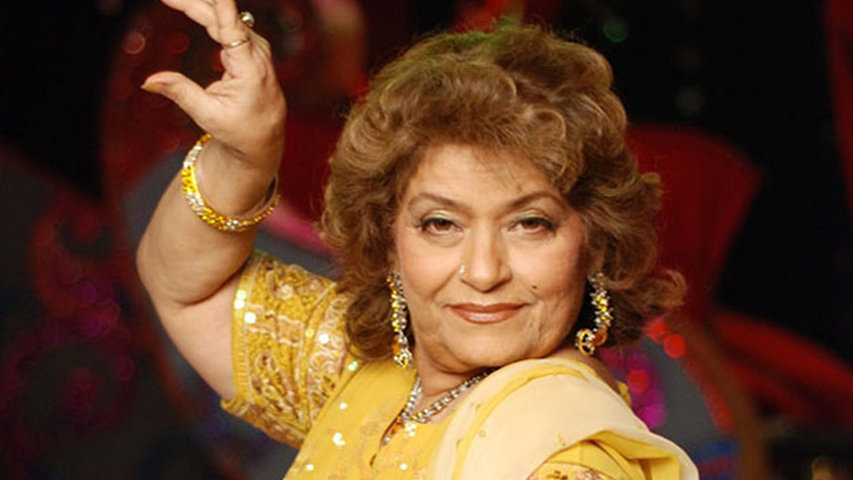
Women Filmmakers Against Misogyny in Bollywood
by Yash Saboo April 30 2018, 5:18 am Estimated Reading Time: 4 mins, 32 secsEvery industry has been plagued by issues when it comes to the wrongful use of power by authorities. The entertainment world isn't left far behind. Over the years, casting couch has been one of Bollywood’s most talked about concern. With the advent of a more wide-reaching media, and thanks to the #metoo movement in the west, many perpetrators of this crime have been apprehended. While many actors agree that casting couch still exists, some deny. But to say that casting couch has been completely eradicated would be a gross overstatement.
Veteran Choreographer Saroj Khan gave a bizarre justification of prevailing casting couch situation in the film industry. She said, "This is going on from 'baba Adam's times', it is not new. Someone or the other always try to take an advantage of a girl. The government does it too, then why are we only behind the film industry? It provides livelihood at least. Does not rape and leave you. It is up to the girl, what she wants to do. If you don't want to fall into wrong hands, you won't”. She later issued an apology while speaking to CNN News 18.

Source : bizasia
This statement left Twitterati in a furious state. While many tweeted out saying they've lost respect for Saroj Khan, actors such as Shatrughan Sinha and Richa Chadha defended her. Sinha believed that "the concept of ‘you please me, I’ll please you’ has been happening since time immemorial and there is nothing to be upset about." Richa Chadha said, “I think people are making mountain of molehill. There’s narrative that people in Bollywood are the worst and indulge in malpractices, which isn’t the case. She meant to say it takes place in all industries, why is Bollywood being singled out?”
Meanwhile, women filmmakers took to Facebook to speak up on misogyny and harassment. Veena Bakshi, an ad filmmaker best known for her award-winning film The Coffin Maker (2013), wrote about her brush with Bollywood when she set out to direct a feature film in 2004. “I noticed that the producer would make me work late, sometimes alone with him in the office. Crude sexual jokes being made all the time. I ignored the whole thing, telling myself that all I had to do was concentrate on my film.”
Veena Bakshi, who has made over 300 ad commercials wrote in her post, “When Saroj Khan says at least Bollywood gives you work after rape, it is a very sad statement on both the men as well as the women of this industry. It becomes a bloody way of life. And when you refuse to become a part of it, you are out.”
Nishtha Jain, the producer-director of the acclaimed documentary Gulabi Gang (2012), wrote, “I heard from women cinematographers how they were called for an interview after the director had liked their work but dismissed after seeing their gender, size and attitude…”
In another post, she wrote, "If women speak about their abuse without wearing the fashionable air of bravado then people are quick to label them as playing out victimhood. This is yet another way to shame women. Is it so difficult to understand that everyone is not on the same timeline? That this is not a race to become a hero. Those women may have different societal/familial pressures operating on them. And it's not even about external pressures. Everyone is built differently. Isn't it enough that they have begun to speak out?"
Television writer-director and Editor of The Daily Eye Vinta Nanda, who made some of the popular shows of the 90s such as Tara, Shatranj, Umeed and Raahat too spoke about the need to end the culture of silence. She supported Veena Bakshi and Nishtha Jain and wrote in her Facebook post, "it is important for the predators and those misogynistic men who tried to bring us down to know that it may have been easy to crush us and demonise us thereafter, but we survived all of you and we're here, alive and kicking to tell our stories to the rest of the world. Not only that, despite everything shameful that you did to bury us along with your dirty pasts, all of us continue to write, produce as well as make films."
She believes the women in the industry have faced harassment due to deep-rooted patriarchy in society. This is what she tried to address in her shows and, especially, in her feature film White Noise (2003).
"It (White Noise) told the entire truth about misogyny in #Bollywood including the role women play in providing cover to the perpetrators. Not only did they give it a pitiful release, they saw to it that it was never acquired by television channels for a telecast, and even today the middle men ensure that it doesn’t get bought by digital platforms. I was hounded and chased out of the business, humiliated by gangs that even used women who were complicit with them to insult me and break me during crucial meetings," she wrote in another post commenting about the misuse of power by the people at the film board.
Its high time, more and more women from the Bollywood industry come forward and speak openly about the misogyny that exits in the industry. It will surely help budding female professionals to struggle less and function more efficiently.




-173X130.jpg)

-173X130.jpg)

-173X130.jpg)
-173X130.jpg)
-173X130.jpg)
-173X130.jpg)